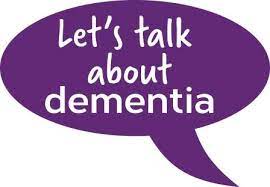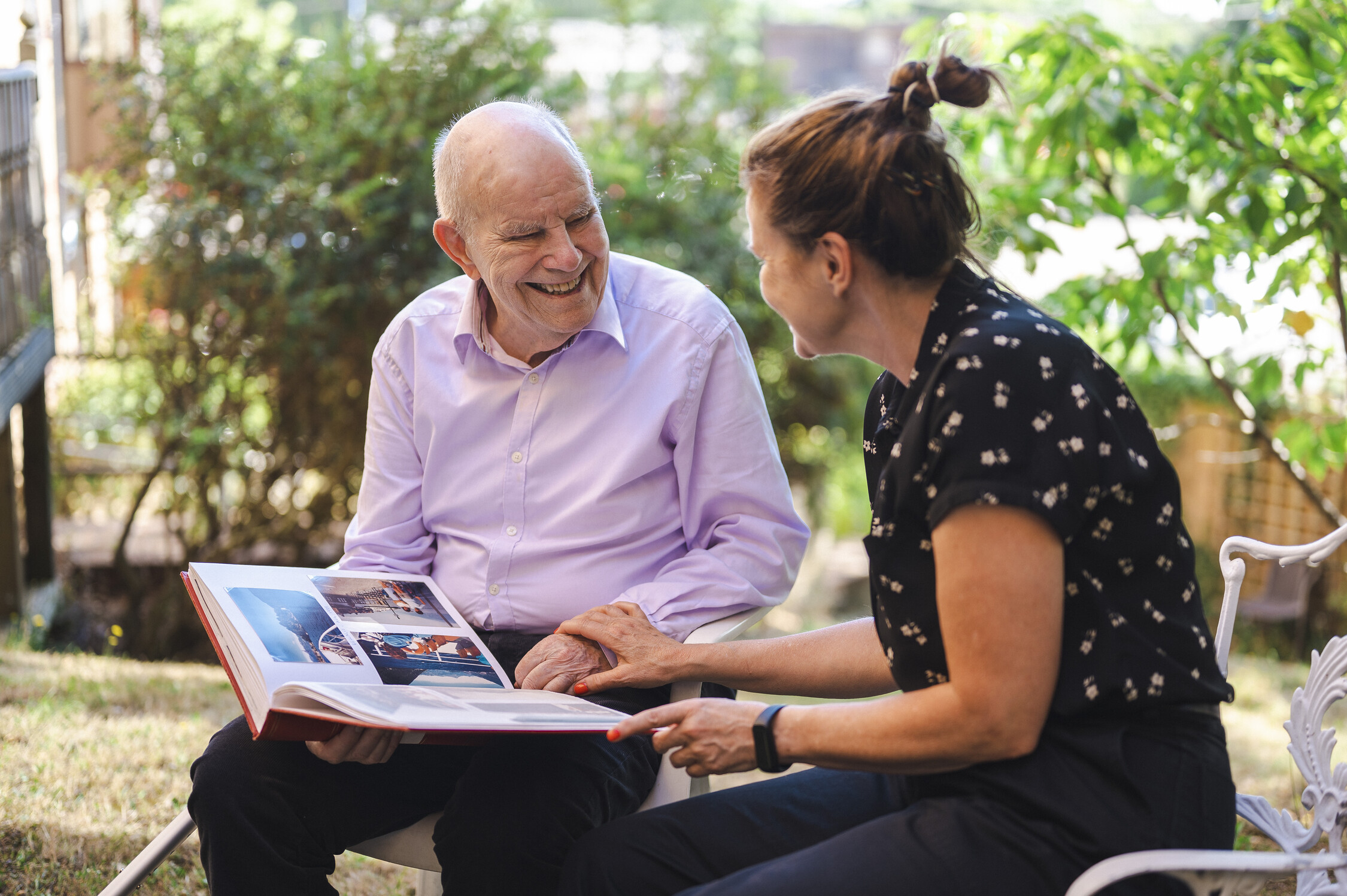Dementia Action Week 2023 is here and the theme is diagnosis
Zibiah Loakthar, our Cuimhne Coordinator writes,
 The theme of Dementia Action Week this year, chosen by the Alzheimer’s Society, is diagnosis. The message is that seeking a timely diagnosis can enable people to access support and avoid reaching crisis point.
The theme of Dementia Action Week this year, chosen by the Alzheimer’s Society, is diagnosis. The message is that seeking a timely diagnosis can enable people to access support and avoid reaching crisis point.
Forgetting things should not just be put down to older age. We may be worried that we, or someone we care about, is frequently forgetting things, or becoming confused, or more irritable or restless. It may be worth having a conversation with a GP to identify or rule out dementia.
There are many possible symptoms of dementia. The Alzheimer’s Society has created a very useful checklist for these possible symptoms. The checklist helps people to have a conversation with a doctor or other health professional.
The checklist is not intended to diagnose dementia or any other health condition. However, it can be used to help people think about any changes they have noticed and may feel concerned about.
Benefits of seeking advice from a GP
In some cases, seeking advice from a GP may lead to a diagnosis of something other than dementia. Confusion and memory loss for instance might be caused by a urinary infection which following diagnosis can be promptly and effectively treated.
Conversations that rule out dementia may lead to peace of mind. Anxiety about the possibility of having dementia can hamper concentration and create memory issues, which might disappear where anxiety is dissolved.
Where conversations with GPs do lead to a diagnosis of dementia, a wide range of support can be offered. For instance, people can be signposted to dementia support services and support groups and advised about financial support they and any family carers can access.
Timely diagnosis
Timely diagnosis may enable people to put their affairs in order themselves, rather than leaving it to others to do so. They can consider choices they would like to make such as making a lasting power of attorney.
 Timely diagnosis also gives people chance to make lifestyle changes that might slow down the development of their dementia, such as taking up new social or sports activities. People can better prepare themselves and others for changes they may experience rather than being unexpectedly surprised by them.
Timely diagnosis also gives people chance to make lifestyle changes that might slow down the development of their dementia, such as taking up new social or sports activities. People can better prepare themselves and others for changes they may experience rather than being unexpectedly surprised by them.
Timely diagnosis may also allow for more choice around quality time spent with people.
A diagnosis of dementia is a diagnosis of a disability; it is not a death sentence. People’s experiences of dementia will be different. Some people live with dementia for many years. People diagnosed with dementia may choose to continue to work or volunteer.
Employers and charities who are informed can seek to make relevant adjustments so that people living with dementia may continue working life or volunteering if they wish. A diagnosis of dementia does not stop people from enjoying life, learning new skills, trying new experiences. A diagnosis does allow for the possibility of adaptions being made around activities so that these can be more fully enjoyed.
What can organisations in our Irish in Britain network do to promote dementia diagnosis?
Encourage people who may be worrying about possible symptoms of dementia to speak to their GPs.
 Since the Covid-19 pandemic, people in our community have sometimes been cautious about consulting a GP. They worry that their issue is not important enough to merit taking the GPs time, or feel anxious about possible risk of transmission of Covid-19.
Since the Covid-19 pandemic, people in our community have sometimes been cautious about consulting a GP. They worry that their issue is not important enough to merit taking the GPs time, or feel anxious about possible risk of transmission of Covid-19.
Some in the community are out of the habit of seeing a GP. Community conversations about the value and importance of seeing a GP to address any concerns about possible dementia symptoms can help change this.
Seek qualified medical expert advice and testing, rather than attempting self-diagnosis through search engines like google! Organisations might be able to offer a volunteer to support someone to make an appointment with their GP and help them to attend the appointment.
Talk about dementia.
People are afraid of what they do not know or understand well. Talking can demystify dementia. Conversations about dementia may help people to realise that our Irish in Britain community is warm and inclusive.
A dementia diagnosis for ourselves, or for people we care about, is not a pathway to ostracisation and social isolation. Community groups can and do make adaptions to their activities and services so that they are as inclusive as possible to people living with dementia and family carers.
Do browse our Cuimhne web pages for ideas for dementia inclusion and helpful resources. For instance, see our videos posted here.
Support the community to learn more about dementia and the benefits of seeking a timely diagnosis.
This could involve hosting a talk with a specialist guest speaker or a webinar or learning workshop for staff, volunteers and family carers in the community.
Our Cuimhne team at Irish in Britain are happy to be consulted here. We may be able to arrange to come out to your group to give a talk, deliver accredited training or signpost you to free online training.
Contribute to wider research to build understanding of how and why dementia diagnosis practice may differ across the country.
Dementia diagnosis practice may differ across communities and a culturally sensitive approach may be beneficial. Irish in Britain members are encouraged to respond to this survey.
People based rurally are especially encouraged to voice views here. Share your experiences to help bring about policy change and to improve dementia practice across the country!
Find out more about Irish in Britain's Cuimhne Memory Loss campaign here.